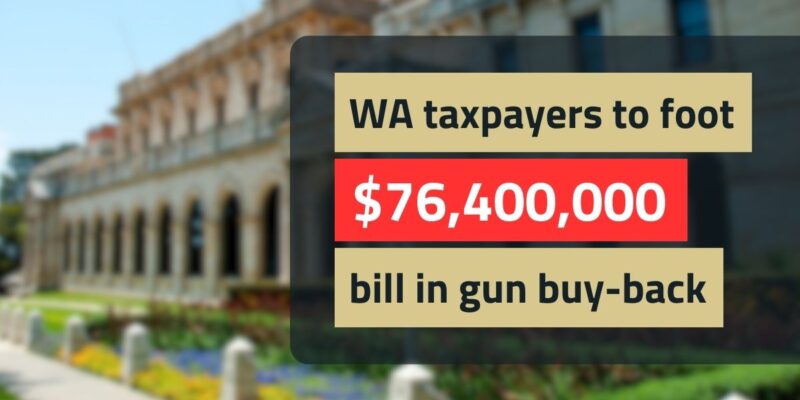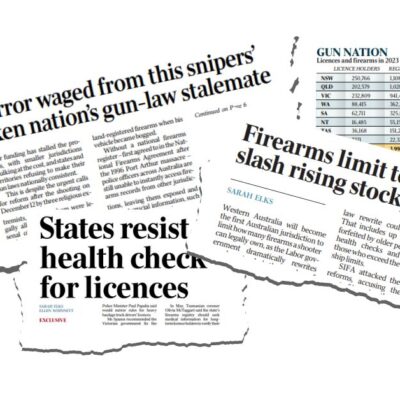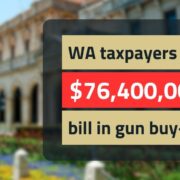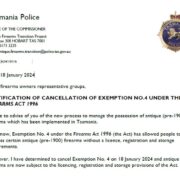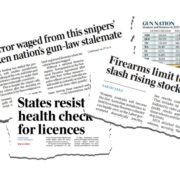Papalia’s war on legally owned firearms to cost taxpayers over $76 million.
Following the release of the WA Governments mid-year financial projection statement, the Shooting Industry Foundation of Australia (SIFA) is sounding the alarm at plans to waste over $76 million of taxpayer funds on a pointless and unnecessary buy-back of low risk, legally owned and registered firearms.
The papers show the buy-back will target registered firearms that WA Police have already approved for purchase by licensed and law-abiding owners, leading SIFA to question what part (if any) of police minister Paul Papalia’s firearms reform package is directed at criminals and the criminal possession of firearms.
Specifically, the financial projection statement highlights the following:
The Government has committed an additional $76.4 million over the forward estimates to continue implementation of the State’s firearms reform program. This includes:
- $64.3 million for a voluntary firearms buyback scheme which will provide an opportunity for licence holders to surrender firearms ahead of legislative reforms being enacted. Of this amount, $20 million will be provided to the Western Australia Police Force in 2023-24, with the remaining $44.3 million held as a spending provision in 2024-25 pending the final design of the scheme;
- $8 million over 2023-24 to 2025-26 for additional temporary resourcing to support the reforms and buyback scheme; and
- $4.1 million for a new forensic register to improve the management of forensic evidence of for firearms -related investigations.
James Walsh, CEO of SIFA said, “this is irrefutable evidence that the WA Labor Government is not interested in targeting criminals and criminal possession of illegal firearms, rather they are going after the law-abiding sporting shooters in an effort to trick the public into thinking they are doing something to combat the out-of-control crime problem in WA”.
SIFA has warned the police minister on multiple occasions that his proposed reforms will have no effect whatsoever on the criminal element, and the proposed gun buy-back plan further demonstrates that the minister is ignoring the concerns and strategic advice offered by industry.
The effectiveness of government run buy-back programs that target legally owned and registered guns has been probed several times both here and abroad, with many academics and analysts raising concerns that for the significant public cost of these initiatives, there is no tangible increase in public safety nor a demonstrable reduction in illicit gun crime, woundings or deaths.
“The West Australian public should rightfully be outraged that their government is wasting over $76 million on a program that targets law abiding people rather than criminals. This whole plan is nonsense and is a wilful waste of taxpayer funds. Not a single criminal will surrender their gun to be bought back by the state” Mr Walsh said.
SIFA is calling on the WA Government to abandon their attack on licensed and law-abiding firearms businesses and sporting shooters, and to focus reform on the black-market trade and possession of illegal and illicit firearms by criminals.
References:
- Melbourne Institute Working Paper Series Working Paper No. 17/08 – The Australian Firearms Buyback and Its Effect on Gun Deaths Wang-Sheng Lee and Sandy Suardi.
- International Coalition for Women in Shooting and Hunting (WiSH) – What Was Australia’s 1996 Gun Buy Back Designed to Achieve?
- National Bureau of Economic Research – Have U.S Gun Buy Backs Programs Misfired? Toshio Ferrazares, Joseph J. Sabia & D. Mark Anderson
- Review and Critique of Chapman S, Alpers P, Agho K & Jones M (2006) Australia’s 1996-gun law reforms: faster falls in firearms deaths, firearm suicides, and a decade without mass shootings. Injury Prevention, 12: 365-372. Dr Jeanine Baker and Samara McPhedran.
- Reuter P and Mouzos J (2003) Australia: A Massive Buyback of Low-Risk Guns. In J. Ludwicg and P.J. Cook (Eds) Evaluating Gun Policy: Effects on Crime and Violence Washington DC: Brookings Institution Press.


